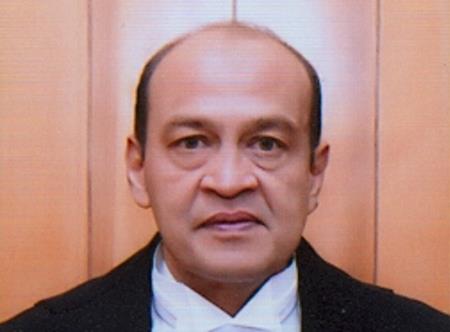
Cash Row: Centre To Table Impeachment Motion Against Justice Varma In Upcoming Parliament Session (Lead)
Minister of Parliamentary Affairs Kiren Rijiju is expected to lead consultations with all political parties ahead of tabling the motion. Top government officials indicated that cross-party consensus would be crucial, given the constitutional thresholds required for the removal (impeachment) of a judge.
The move came after Union Home Minister Amit Shah held a meeting with Union Minister of State (Independent Charge) for Law and Justice, Arjun Ram Meghwal. Following this, the Home Minister held a meeting with Prime Minister Narendra Modi, and this lasted for two hours.
Subsequently, government sources said that the impeachment motion would be tabled in the Monsoon Session of the Parliament, and Parliamentary Affairs Minister Rijiju would hold talks with opposition parties.
Later, BJP President and Health Minister J.P. Nadda came to the residence of the Home Minister to meet him. Amit Shah and Nadda, who is the Leader of the House in the Rajya Sabha, then went to meet Vice President Jagdeep Dhankhar, who is also the Chairman of the Upper House.
It is likely that the impeachment motion may be introduced in the upper house, and the meeting between the Union Ministers and Dhankhar could be in this connection only.
Then Delhi High Court judge, Justice Varma, is at the centre of a controversy after a large quantity of unaccounted cash was allegedly 'recovered' from his residence after a fire at his 30 Tughlak Crescent residence in New Delhi. Then Chief Justice of India Sanjiv Khanna had ordered Justice Varma's immediate transfer to the Allahabad High Court, his parent court. Justice Varma was away from the city when the fire broke out at his official bungalow. His family members called in firefighters and the police to control the blaze. After the fire was doused, officials reportedly discovered a massive stack of cash in one of the rooms.
A three-member inquiry committee, constituted under the in-house mechanism for judicial accountability by then CJI Justice Khanna, found the allegations serious enough to merit removal proceedings against Justice Varma.
As per established protocol, then CJI Khanna formally forwarded the committee's report to the President and the Prime Minister, signalling that the judge had refused to resign voluntarily. Under the in-house guidelines, this step is taken only when the inquiry finds credible evidence that warrants impeachment.
The impeachment of a sitting judge is among the rarest and most sensitive procedures in India's constitutional framework. Only a handful of judges have ever faced removal proceedings in the country's history - most have resigned before the motion could be carried to conclusion.
The gravity of the allegations against Justice Varma and the formal findings of the judicial inquiry have now set the stage for a landmark episode in India's judicial accountability system.

Legal Disclaimer:
MENAFN provides the
information “as is” without warranty of any kind. We do not accept
any responsibility or liability for the accuracy, content, images,
videos, licenses, completeness, legality, or reliability of the information
contained in this article. If you have any complaints or copyright
issues related to this article, kindly contact the provider above.
Most popular stories
Market Research

- B2PRIME Appoints Former Onezero Sales Head Stuart Brock As Institutional Business Development Manager
- B2broker Receives“Best Liquidity Provider” Award At Forex Traders Summit Dubai 2025
- Variational Announces $1.5 Million Strategic Round And Launches Referral Program
- Edgen Launches AI Super App, Democratizing Institutional-Grade Crypto Market Intelligence
- Yala Brings Cross-Chain Bitcoin Liquidity To Solana
- From Private Equity To Public: Trace ASI's AI For Crypto Hits 87% Success Rate





















Comments
No comment